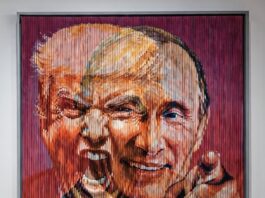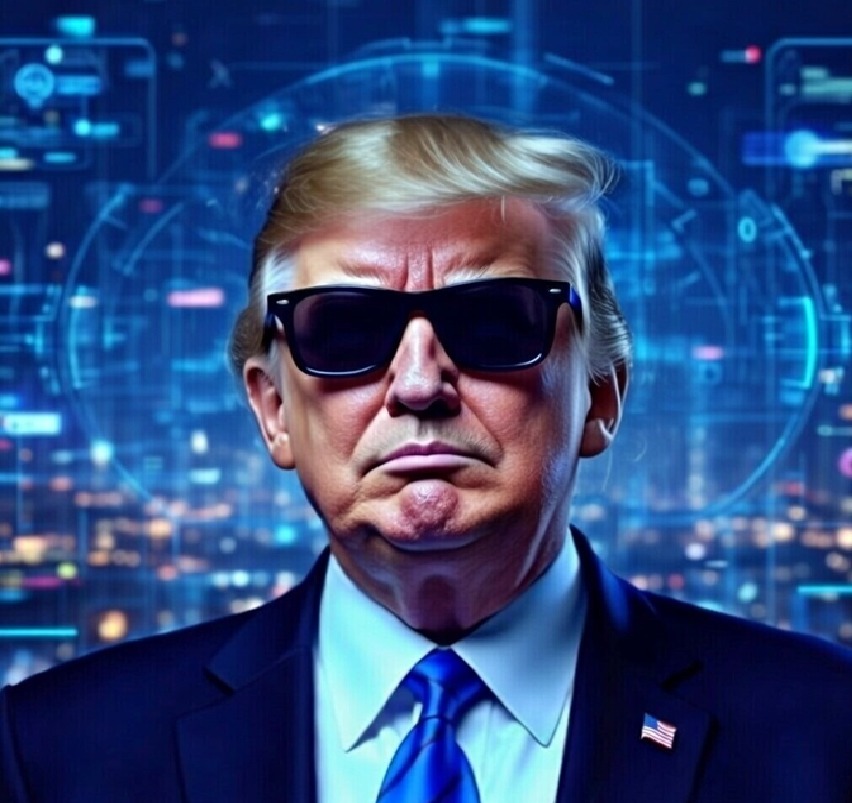Last month, UK’s commissioner for biometrics and surveillance cameras, Fraser Sampson, expressed concerns over the dominance of Chinese CCTV cameras in the country.
“TORN Apart”: A Drone ‘Live Streams’ Its Own Destruction By A Russian Defense System In Ukraine — Watch
Two major Chinese companies — Hikvision and Dahua — face a ban risk in Britain for surveillance of the Uyghurs minority in Xinjiang province.
London is known for being one of the world’s most surveilled cities, with 73 closed-circuit television (CCTV) cameras per 1,000 people.
Only Taiyuan in Shanxi Province (northern China) and Wuxi in Jiangsu Province (eastern China) have more cameras per capita, according to security researcher Comparitech.
However, tensions are now increasing over two of the world’s largest developers of internet-protocol cameras, Hangzhou Hikvision Digital Technology and Zhejiang Dahua Technology, which have consistently been expanding their dominance in the United Kingdom, South China Morning Post reported.
“We shouldn’t be using companies that are complicit in genocide. That should not be allowable at all,” said Alicia Kearns, co-chair of the China Research Group and a Conservative Member of Parliament.
“On the other side of the coin, we are allowing China to build a tech totalitarian state and they’re going to build it on the backs of data from the people of Britain and other countries … We are essentially sending the facial and gait data of our children and people across the UK back to China and the [Chinese Communist Party] CCP.”
While both, Hikvision and Dahua are private companies, they have major shareholders with ties to the Chinese Communist Party (CCP).
Earlier, both companies were included on the so-called Entity List of the US, along with a handful of Chinese companies and public-security departments, after American officials said they were involved in “human-rights breaches and abuses” in Xinjiang.

Washington is also mulling an array of unprecedented sanctions on these two firms which have consequences for more than a hundred countries using equipment manufactured by them, reported Al Jazeera.
Hikvision, for one, is expected to be included in the Specially Designated National (SDN) list, which is usually reserved for drug lords and leaders of violent groups.
Hikvision is known to be controlled by China Electronics Technology Group Ltd. (CETC), China’s largest electronics defense contractor and one of the country’s major military-industrial conglomerates. ‘All military-industrial entities in China are required to accept the regime’s commands under the Chinese Communist Party (CCP).
Will Britain Yield?
Western governments have been at loggerheads with Chinese companies for a while now, with the US taking the lead and its allies, barring a few, tagging along.
For example, the US first rallied against Huawei Telecom Company for spying and having links with the Chinese Communist Party and the PLA. It managed to convince most of its allies to ban the Chinese telecom giant from 5G trials and equipment.
The United Kingdom, too, had followed suit. In November 2020, the UK announced that all telecom providers in the country must stop installing Huawei’s equipment in the 5G mobile network from September 2021. In March of 2021, the UK imposed sanctions on four Chinese individuals and one entity over “genocide” in Xinjiang province.
#UK bans #Huawei from #5G networks in “victory for the Trump administration”
UK said #US sanctions on Huawei threaten security of equipment, necessitating ban.
Current Huawei equipment has to be removed by 2027https://t.co/6lbdOwOqdz
— Indo-Pacific News – Geo-Politics & Defense (@IndoPac_Info) July 15, 2020
However, there have been instances where the UK has stopped short of taking decisive coercive measures despite acknowledging Chinese wrongdoing.
In November last year, the UK government refused to officially accept that the Uyghurs in Xinjiang were facing genocide at the hands of Chinese authorities. It had also decided against a cotton ban from Xinjiang.
This time around, a long-awaited public-procurement law in Parliament, as well as a growing chorus of human-rights and security-related objections, might pave the way for a ban on new purchases, if not the removal of current cameras, according to SCMP.

The procurement bill, if passed later this summer, would give Britain more power to bar corporations linked to human-rights abuses from vying for local and national government contracts.
“Mass-surveillance systems have always been the handmaid of fascism,” David Alton, a cross-bench peer, said in the House of Lords last week. “The government should come forward with a timetable to remove these cameras and technology from the public-sector supply chain, and campaign to encourage and support businesses in the private sector to do the same. We simply cannot allow the tools of genocide to continue to be used so readily in our daily lives.”
However, some critics have said the procurement bill does not go far enough. “The government has promised that its new procurement bill will deal with this, but we’ve read it – it doesn’t,” Silkie Carlo, director of UK civil liberties group Big Brother Watch, said in a tweet. “The UK risks complicity in some of the most serious crimes against humanity in our lifetime.”
The law comes as the UK government, which has long encouraged Chinese corporations to invest in the UK, takes a harsher line against China and its expanding global influence. In recent weeks, it has announced reviews of multiple purchases of UK enterprises by Chinese firms, both for national security reasons.
At the same time, in an April address, UK Foreign Secretary Liz Truss cautioned that China must “play by the rules” on human rights and other international standards or risk sanctions. However, ending the British association with the Chinese CCTV network will be no cakewalk for the way the latter is enmeshed in the British surveillance system.
Chinese CCTVs Watch Nuclear Stations?
Given the prevalence of Hikvision and Dahua cameras in the public and private sectors in Britain, particularly at the local level, ending Britain’s love affair with Chinese-made surveillance cameras may be more difficult than it appears.
In the United Kingdom, an estimated 1.3 million Hikvision cameras are in use or a little over one camera for every 50 people. According to a survey by the Thomson Reuters Foundation, two-thirds of borough councils in London and the UK’s 20 major cities utilized Hikvision or Dahua technology for public surveillance in 2020.
Hikvision cameras are used in the administrative buildings of the police force that defends Britain’s nuclear power stations. Bloomberg reported last month, citing people familiar with the situation, that Hikvision devices also act as electronic eyes for the UK Health Security Agency, which studies vaccinations and dangerous diseases.
According to reports, the Health Department has barred new Hikvision equipment acquisitions but has not ordered the removal of current cameras. When contacted, UK officials cited national security for refusing to identify which equipment is used on government premises.
On its part, Hikvision stated that it has cooperated with previous government probes in the United Kingdom and that its business strategy in the United Kingdom is consistent with the security industry, in that it sells through distribution partners rather than directly to end customers such as local governments.
“Hikvision takes all reports regarding ethical and security concerns very seriously and recognizes our responsibility for protecting people and property,” a Hikvision spokesperson said. “The company has been engaging with governments globally to clarify misunderstandings about the company [and] our business, and address their concerns.”
Dahua, on the other hand, said that it strongly supports procurement reform and that it fully complies with applicable laws and rules where it operates. “About the groundless human-rights allegations, we reaffirm what we have consistently and publicly stated: we have not been involved directly or indirectly in promoting human-rights violations in any country in which we operate,” a Dahua spokesperson said.
Fraser Sampson, the independent biometrics and surveillance camera commissioner, has asked for a ban on Hikvision in recent months, claiming the corporation has refused to answer his questions regarding its operations in Xinjiang, including acknowledging human rights violations there.
He’s asked Dahua similar queries, but the corporation hasn’t responded.
While the stakes are high for the British government to take the plunge, a lot remains to be seen on how the country decides on decoupling, if at all, from Chinese surveillance providers.
- Contact the author at sakshi.tiwari9555@gmail.com
- Follow EurAsian Times on Google News



